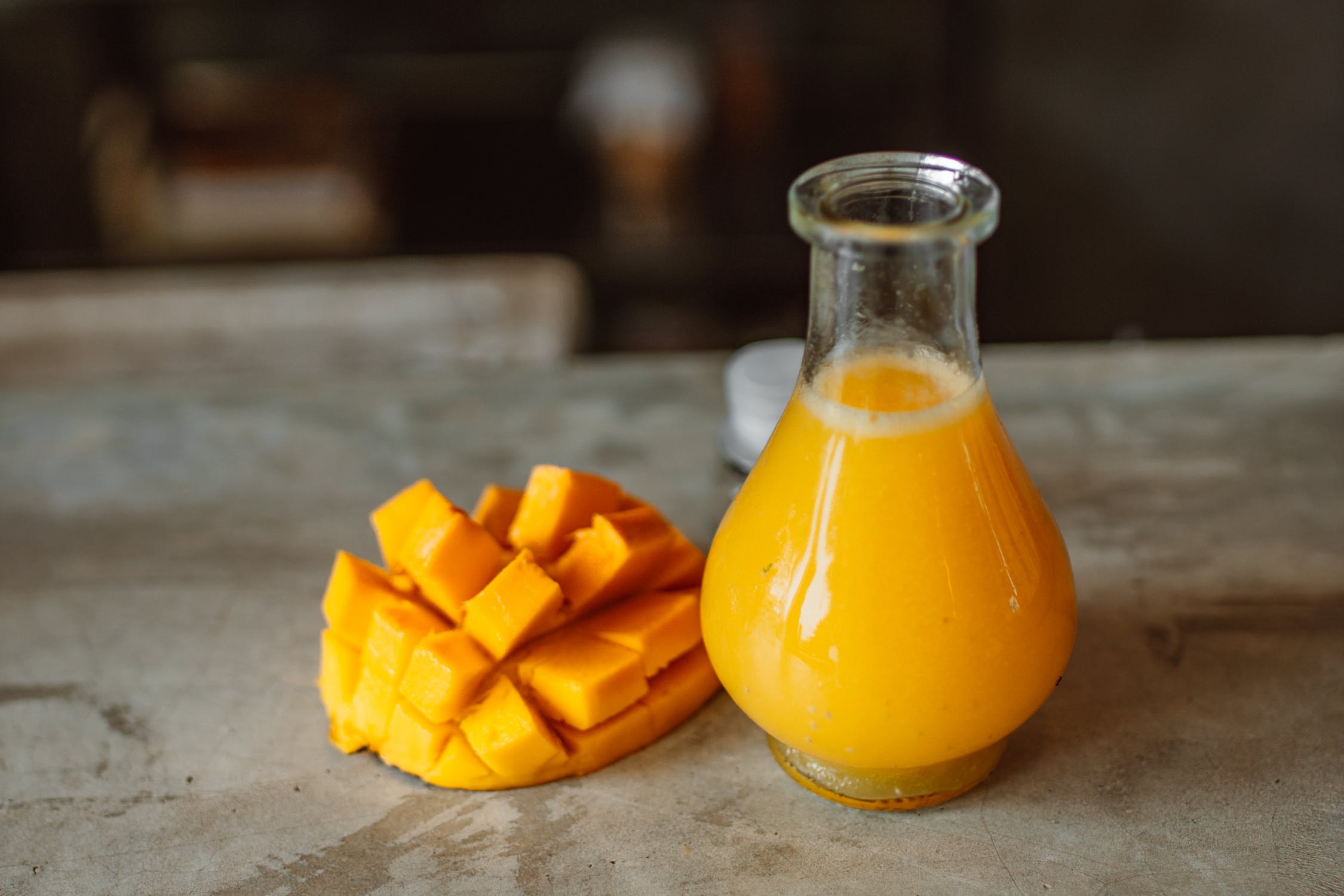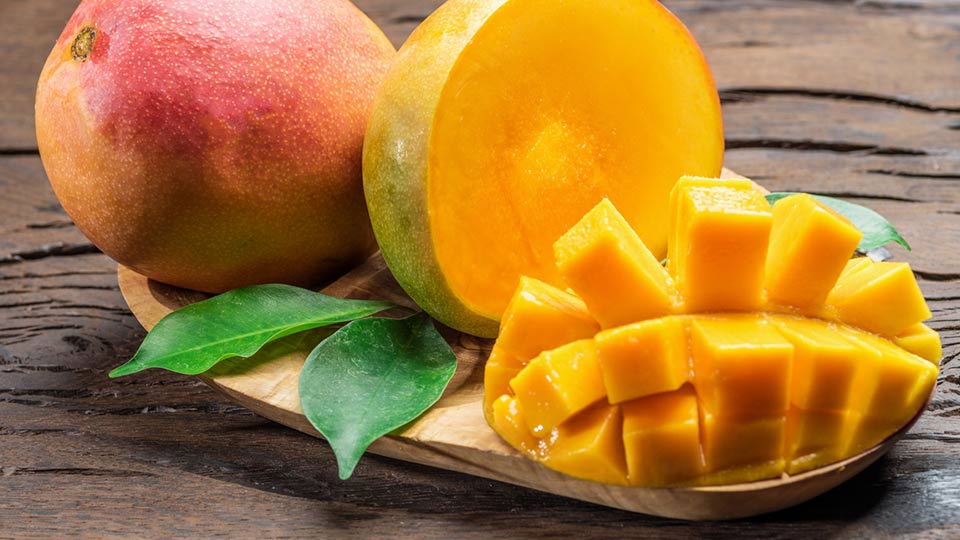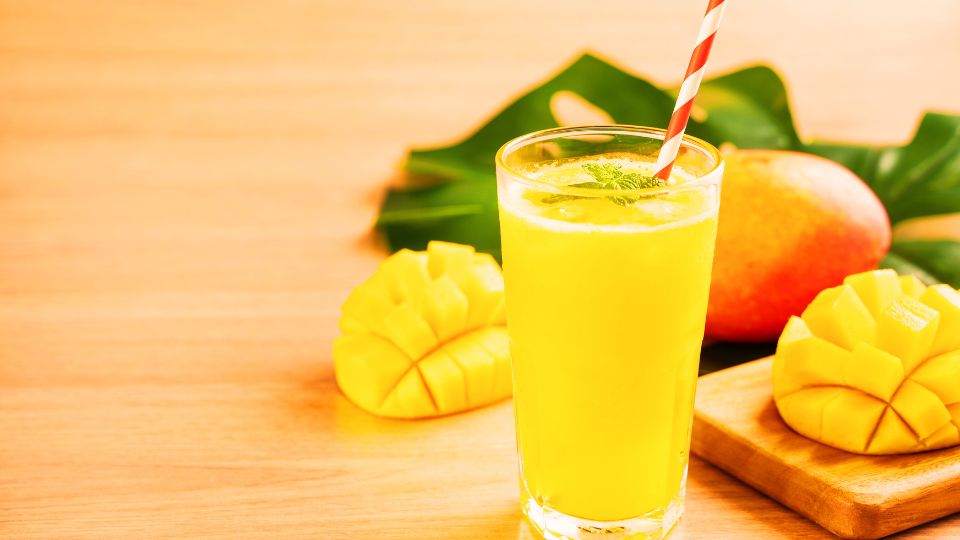Constipation is a common digestive problem that can cause discomfort and disrupt daily life. Many people turn to natural remedies, such as fruit juices, to alleviate their symptoms. One fruit juice that has gained popularity for its potential benefits in constipation relief is mango juice.
In this article, we will explore the nutritional content of mango juice and its potential benefits for constipation relief, as well as ways to incorporate it into your diet.
Is mango juice good for constipation
Mango juice is a good source of several vitamins and minerals that are essential for digestive health, including:
- Fiber: Mangoes are a rich source of dietary fiber, which is essential for maintaining healthy digestion. Fiber helps to promote regular bowel movements and prevent constipation.
- Vitamin C: Mangoes are high in vitamin C, an antioxidant that supports the immune system and can help to reduce inflammation in the digestive tract.
- Vitamin A: Mangoes are also a good source of vitamin A, which helps to maintain healthy mucous membranes in the digestive tract.
- Potassium: Mangoes are a good source of potassium, an essential mineral that helps to regulate fluid balance in the body and can help to relieve constipation.
The high fiber content in mango juice can help to promote regular bowel movements and prevent constipation. Fiber helps to add bulk to the stool, making it easier to pass through the digestive system. Additionally, the vitamins and minerals found in mango juice, such as vitamin C and potassium, can help to reduce inflammation in the digestive tract and regulate fluid balance, further supporting healthy digestion.
What fruits should you avoid if you are constipated?
If you are constipated, there are some fruits that you may want to avoid or limit in your diet, as they can exacerbate constipation. These include:
- Unripe bananas: Unripe bananas contain high levels of resistant starch, which can be difficult to digest and cause constipation.
- Apples: While apples are a great source of fiber, they are also high in sorbitol, which can be difficult to digest and lead to constipation.
- Persimmons: Persimmons contain high levels of tannins, which can cause constipation in some people.
- Pears: Pears are also high in sorbitol, which can lead to constipation.
- Raspberries: While raspberries are a good source of fiber, they also contain seeds that can be difficult to digest and lead to constipation.
Benefits of Mango Juice for Constipation Relief
Constipation is a common digestive issue that can cause discomfort and pain. While many people turn to over-the-counter remedies for constipation relief, natural remedies like mango juice may offer a gentle and effective alternative.
Mango juice is packed with vitamins, minerals, and fiber that can help support healthy digestion and alleviate constipation. Here are some of the key benefits of mango juice for constipation relief:
- High fiber content: Mangoes are a great source of fiber, which is essential for promoting regular bowel movements. A single cup of mango juice contains about 0.6 grams of fiber, which can help add bulk to the stool and promote healthy digestion.
- Natural laxative properties: In addition to fiber, mangoes contain certain compounds that have natural laxative properties. For example, mangoes are rich in enzymes like amylase and protease, which can help break down food and aid in digestion.
- Promotion of healthy gut bacteria: Mangoes also contain prebiotic fibers, which can help nourish the good bacteria in your gut. This can promote a healthy digestive system and alleviate constipation.
Ways to Incorporate Mango Juice into a Constipation-Relief Diet
Mango juice is a delicious and natural way to relieve constipation. It is rich in dietary fiber, vitamins, and minerals, which can promote digestive health and regularity. Incorporating mango juice into your diet can be a simple and effective way to alleviate constipation symptoms. Here are some ways to add mango juice to your diet to help relieve constipation.
Drinking mango juice on its own
One of the easiest ways to incorporate mango juice into your diet is to drink it on its own. Simply pour a glass of fresh mango juice and enjoy it as a refreshing drink. You can make fresh mango juice at home by blending fresh, ripe mangoes with water and straining out the pulp. Alternatively, you can purchase mango juice from your local grocery store or online.
Adding mango juice to smoothies
Smoothies are a great way to pack a lot of nutrients into one drink. Adding mango juice to your favorite smoothie recipe can add a delicious and nutritious twist. For a simple mango smoothie, blend fresh mango chunks with mango juice, plain yogurt, and a handful of ice. You can also add other fruits and vegetables to your smoothie, such as bananas, spinach, or kale, to boost its nutritional content.
Using mango puree in recipes
Mango puree is a versatile ingredient that can be used in a variety of recipes. It can be added to baked goods, such as muffins or bread, to add natural sweetness and fiber. You can also use mango puree as a topping for oatmeal or yogurt. For a simple mango puree recipe, blend fresh, ripe mango chunks with water until smooth. Use the puree immediately or store it in the refrigerator for up to three days.
Precautions and Considerations
Mango juice has gained popularity for its potential health benefits, including relieving constipation. While it is generally considered safe, there are some precautions and considerations to keep in mind before incorporating it into your diet.
Potential side effects or interactions with medications
While mango juice is generally safe to consume, it may interact with certain medications. For example, it can increase the risk of bleeding when taken with blood-thinning medications like warfarin. It may also interact with some medications used to treat high blood pressure and diabetes.
Additionally, consuming too much mango juice can lead to gastrointestinal discomfort, such as bloating, gas, and diarrhea. This is especially true if you are not used to consuming high-fiber foods.
Importance of consulting with a healthcare professional
If you are considering using mango juice to relieve constipation, it is important to consult with a healthcare professional first, especially if you are pregnant or have any underlying medical conditions. They can help determine if mango juice is a safe and effective option for you, and can provide guidance on how much to consume and how often.
In addition, they may be able to suggest other dietary or lifestyle changes that can help relieve constipation, such as increasing your water intake, eating more fiber-rich foods, and getting regular exercise.
Conclusion
In conclusion, mango juice may be a helpful addition to a constipation-relief diet due to its high fiber content, natural laxative properties, and promotion of healthy gut bacteria. However, it is important to keep in mind that individual responses to fruit juices may vary and there are potential side effects or interactions with medications to consider. As always, it is best to consult with a healthcare professional before incorporating mango juice or any other natural remedies into your diet.







